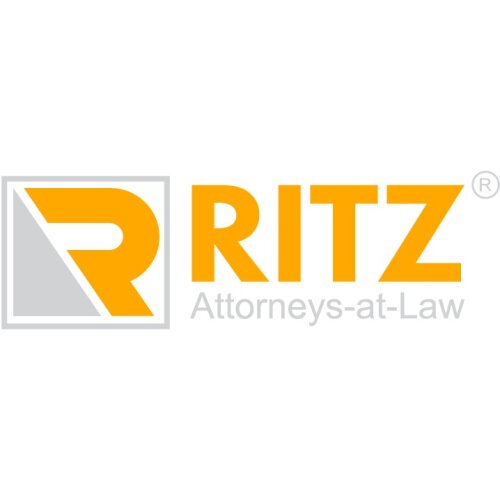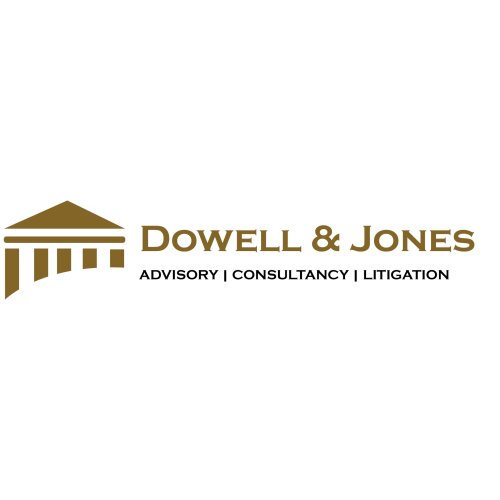Best Structured Finance Lawyers in Malawi
Share your needs with us, get contacted by law firms.
Free. Takes 2 min.
Or refine your search by selecting a city:
List of the best lawyers in Malawi
About Structured Finance Law in Malawi
Structured finance refers to complex financial instruments and transactions designed to help organizations manage risk, raise capital, and optimize financial operations. In Malawi, structured finance often involves practices such as securitization, syndicated loans, asset-backed securities, project finance, and other forms of tailored financial arrangements. These structures are commonly used by banks, large corporations, development projects, and public institutions to access funding, minimize risks, or invest efficiently. The regulatory environment in Malawi is still developing, with an increasing focus on creating a conducive and transparent framework that supports complex financial solutions while protecting both investors and the broader economy.
Why You May Need a Lawyer
Structured finance deals are often complex and involve multiple parties, extensive documentation, and sophisticated risk assessments. In Malawi, you may need a lawyer for several reasons:
- Drafting, reviewing, or negotiating structured finance agreements or contracts
- Ensuring compliance with Malawian laws and regulations
- Identifying binding legal liabilities and obligations for all involved parties
- Handling disputes or enforcement related to structured finance transactions
- Structuring cross-border financing deals that require knowledge of international as well as local regulations
- Advising on regulatory changes that might affect existing or planned structured finance products
- Facilitating approval from regulatory authorities such as the Reserve Bank of Malawi
- Protecting the interests of investors, borrowers, and sponsors involved in these transactions
The expertise of a lawyer ensures that your structured finance deal is lawful, efficient, and tailored to your needs.
Local Laws Overview
Structured finance transactions in Malawi are primarily governed by a combination of statutes and regulatory guidelines. Some of the key legal aspects include:
- Banking and Financial Services Law: The Financial Services Act and Banking Act regulate activities of banks and other financial institutions involved in structured finance.
- Securities Regulation: The Securities Act and guidelines by the Reserve Bank of Malawi oversee securities issuance, trading, and investor protection in asset-backed transactions.
- Foreign Exchange Controls: The Exchange Control Act may apply to cross-border structured finance deals, especially where foreign currency is involved.
- Company Law: The Companies Act dictates the processes companies must follow when raising funds or participating in structured finance deals.
- Tax Law: The Taxation Act provides for the taxation treatment of income, profits, and capital gains arising from structured finance products.
- Consumer Protection: While typically targeted at retail products, consumer protection principles may still guide fairness and transparency for structured financial transactions affecting individuals.
Understanding these local legal aspects is critical to a successful and compliant structured finance transaction in Malawi.
Frequently Asked Questions
What is structured finance?
Structured finance involves tailor-made financial arrangements and instruments which usually pool financial assets and allocate risks in ways that meet specific needs of borrowers and investors. It is distinct from conventional loans or securities.
Who typically uses structured finance in Malawi?
Banks, large corporations, public-private partnership projects, infrastructure developers, and government entities are common users, often to access significant funding or to diversify risk.
Are there specific regulations for structured finance in Malawi?
There are no standalone statutes dedicated solely to structured finance. Instead, various regulations under banking, company, securities, and taxation laws apply, as well as oversight by the Reserve Bank of Malawi and the Malawi Stock Exchange.
Can individuals participate in structured finance products?
Most structured finance products are designed for institutional investors or high-net-worth individuals due to their complexity and potential risks. Retail investors typically have limited access.
Is securitization allowed in Malawi?
Securitization is possible under the existing legal regime, provided the transaction complies with rules on asset transfers, securities issuance, and investor protection set by regulatory bodies.
What risks are associated with structured finance?
Risks include complexity of the instruments, legal enforceability, credit risk, counterparty risk, operational risk, and regulatory changes. Legal guidance can help manage and mitigate these risks.
What approvals are needed for a structured finance deal?
Depending on the deal structure and entities involved, approvals may be required from the Reserve Bank of Malawi, the Malawi Stock Exchange, and possibly the Malawi Revenue Authority for tax considerations.
What happens if a party defaults in a structured finance deal?
Legal remedies depend on the structure and documentation of the deal. This can include enforcement of securities, realization of collateral, or court action for breach of contract.
Can Malawian companies access international structured finance markets?
Yes, but such deals are subject to foreign exchange controls and must comply with Malawian regulations in addition to international standards. Professional legal advice is essential for cross-border transactions.
How do I ensure compliance with local laws during a structured finance transaction?
Working with experienced legal counsel is the best way to ensure your transaction follows all applicable laws, acquires necessary approvals, and protects all parties’ interests.
Additional Resources
If you are seeking more information or looking for guidance, you may consider the following organizations and resources:
- Reserve Bank of Malawi - Regulatory authority for banks, non-bank financial institutions, and foreign exchange management
- Malawi Stock Exchange - Regulator and facilitator for securities trading and oversight of market conduct
- Financial Services Consultative Committee - Promotes best practices and advises on the development of financial sector regulation
- Malawi Law Society - Can assist in connecting you with lawyers familiar with structured finance
- Ministry of Finance - Provides information on government policy and investment opportunities
- Malawi Revenue Authority - Guidance on tax compliance and implications related to structured finance
Next Steps
If you believe you need legal advice or assistance regarding structured finance in Malawi, consider the following steps:
- Identify the nature and scope of your structured finance transaction or query.
- Gather any documentation or background information relevant to your needs.
- Contact a lawyer or law firm with experience in finance, banking, and securities law in Malawi.
- Prepare a list of questions and objectives for your legal consultation.
- Ensure your lawyer is knowledgeable about local regulations and market practices.
- Stay engaged throughout the process and ask for detailed explanations if any aspect is unclear.
Early legal involvement can help avoid costly mistakes, protect your interests, and ensure your structured finance activities in Malawi are successful and compliant. If you are uncertain, start by reaching out to the Malawi Law Society or a recommended local law firm for initial guidance.
Lawzana helps you find the best lawyers and law firms in Malawi through a curated and pre-screened list of qualified legal professionals. Our platform offers rankings and detailed profiles of attorneys and law firms, allowing you to compare based on practice areas, including Structured Finance, experience, and client feedback.
Each profile includes a description of the firm's areas of practice, client reviews, team members and partners, year of establishment, spoken languages, office locations, contact information, social media presence, and any published articles or resources. Most firms on our platform speak English and are experienced in both local and international legal matters.
Get a quote from top-rated law firms in Malawi — quickly, securely, and without unnecessary hassle.
Disclaimer:
The information provided on this page is for general informational purposes only and does not constitute legal advice. While we strive to ensure the accuracy and relevance of the content, legal information may change over time, and interpretations of the law can vary. You should always consult with a qualified legal professional for advice specific to your situation.
We disclaim all liability for actions taken or not taken based on the content of this page. If you believe any information is incorrect or outdated, please contact us, and we will review and update it where appropriate.
Browse structured finance law firms by city in Malawi
Refine your search by selecting a city.
















